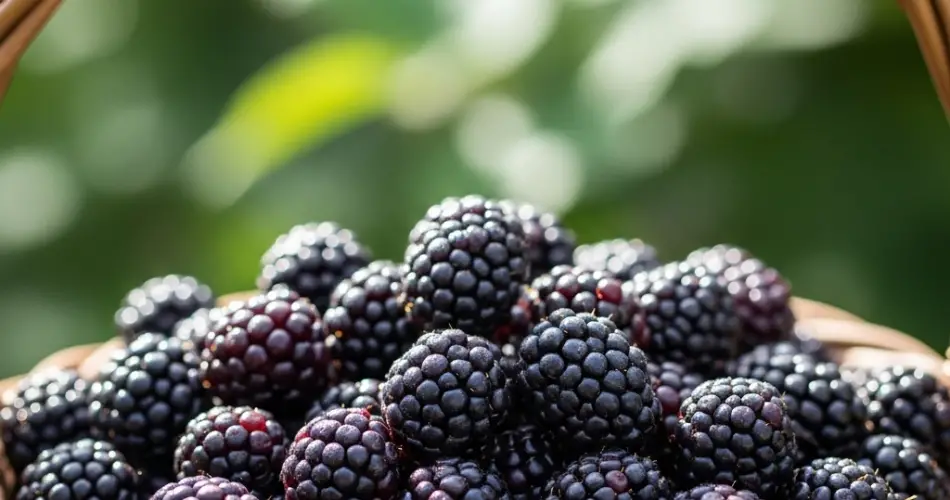Blackberries are a favorite among home gardeners for their juicy fruits, hardy nature, and ease of care. But did you know that what you plant near your blackberry bush can directly influence its health, productivity, and even flavor? That’s where companion planting comes in—a simple, natural strategy that pairs compatible plants to boost growth, deter pests, and improve yields.
If you want to make the most of your blackberry patch, this guide explores the best (and worst) companions to grow alongside blackberries, helping you design a productive and well-balanced garden.
What Is Companion Planting?
Companion planting is the practice of growing certain plants together based on their natural relationships. Some plants help deter pests, others improve soil health, attract pollinators, or act as natural supports. When done right, companion planting reduces the need for synthetic inputs and promotes a thriving, diverse garden ecosystem.
Benefits of Companion Planting with Blackberries
Blackberries can benefit in several ways from thoughtfully chosen neighbors:
-
Pest and disease control: Certain plants repel common pests like aphids, spider mites, and Japanese beetles.
-
Pollinator attraction: Flowers nearby can encourage bees and butterflies to visit and increase fruit set.
-
Improved soil structure: Some companions add nitrogen or loosen compacted soil.
-
Weed suppression: Low-growing companions help shade out unwanted weeds.
However, poor companions can compete for nutrients, harbor pests, or spread diseases that affect blackberries.
Best Companion Plants for Blackberries
Here are some of the most beneficial plants to grow alongside your blackberry bushes:
1. Marigolds
Marigolds are a gardener’s best friend. They repel nematodes, aphids, and other soil-dwelling pests while attracting pollinators. Their bright flowers also add color to your garden beds.
2. Lavender
Lavender’s strong scent can deter pests such as whiteflies and moths. It also attracts bees, which are essential for blackberry pollination.
3. Tansy
Tansy is known to repel ants, beetles, and flies. When planted nearby (but not too close, as it can be invasive), it offers natural pest control for blackberry bushes.
4. Chives and Garlic
These pungent herbs release compounds that deter aphids and spider mites. They also improve the flavor of nearby fruits and make an excellent ground-level companion that won’t crowd the blackberry roots.
5. Yarrow
Yarrow attracts beneficial insects such as ladybugs, lacewings, and parasitic wasps. These natural predators help manage pest populations around blackberry plants.
6. Comfrey
Comfrey is often planted as a living mulch. Its deep roots draw up nutrients, which can be returned to the soil when its leaves decompose. Just be sure to manage it carefully, as it can spread aggressively.
7. Nasturtiums
These fast-growing flowers act as trap crops, drawing aphids away from more valuable plants like blackberries. They also attract predatory insects and pollinators.
8. Thyme
A low-growing herb that repels insects and helps suppress weeds while occupying minimal space. It’s great for underplanting around blackberry bushes.
Plants to Avoid Near Blackberries
Some plants are poor companions for blackberries and can lead to reduced yields or increased problems:
1. Nightshades (Tomatoes, Peppers, Eggplants, Potatoes)
These crops are prone to verticillium wilt—a soil-borne disease that can affect blackberries as well. Avoid planting them nearby to reduce disease risk.
2. Raspberries
While similar in appearance and care, raspberries can spread diseases like blackberry rust and verticillium wilt. It’s best to keep them well-separated.
3. Strawberries
These may compete heavily for nutrients and moisture and can also carry verticillium wilt. While they’re often grown together in large berry patches, keep them separated if disease has been a problem in your area.
4. Mint
Although mint repels pests, it is highly invasive and spreads rapidly through underground runners. Only plant mint in containers near your blackberry patch if you want to benefit from its pest-deterrent properties.
5. Asparagus
Both crops have deep root systems that can compete for nutrients and space, leading to stunted growth.
Spacing and Layout Tips
When companion planting with blackberries:
-
Maintain at least 2–3 feet of space between blackberry bushes and companion plants to ensure airflow and prevent overcrowding.
-
Use raised beds or containers for aggressive companions like mint or comfrey.
-
Incorporate flowering herbs and pollinator-friendly plants on the borders of your blackberry patch to attract helpful insects.
-
Rotate companion plants each season to help manage pests and soil health.
Final Thoughts
Companion planting is a simple and sustainable way to help your blackberry plants thrive without the use of harsh chemicals. By selecting the right mix of herbs, flowers, and vegetables, you can create a garden ecosystem that encourages healthy growth, boosts pollination, deters pests, and even improves fruit quality.
Whether you’re growing blackberries in the ground or in containers, thoughtful companion planting will lead to healthier plants and tastier berries—while adding beauty and balance to your garden space.



